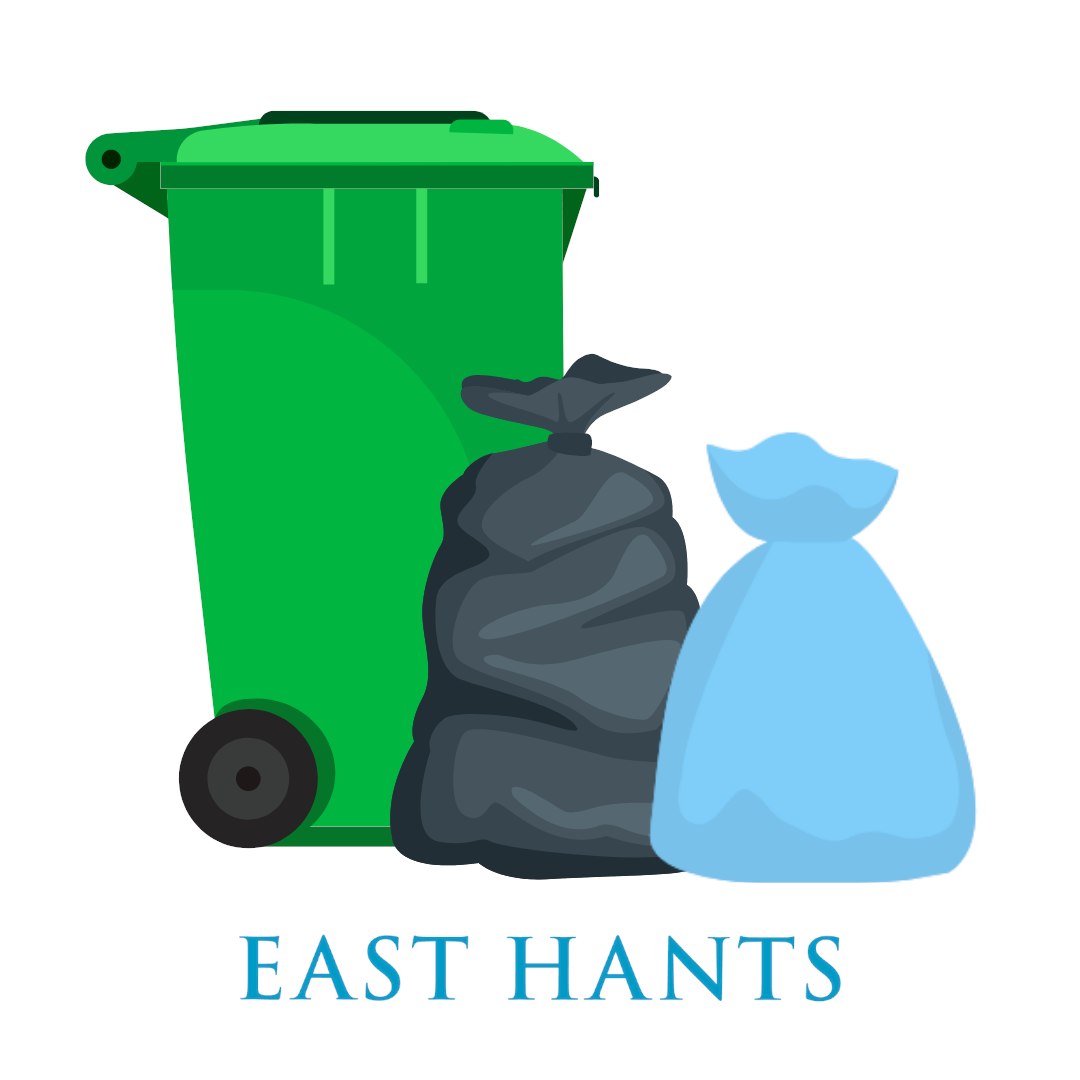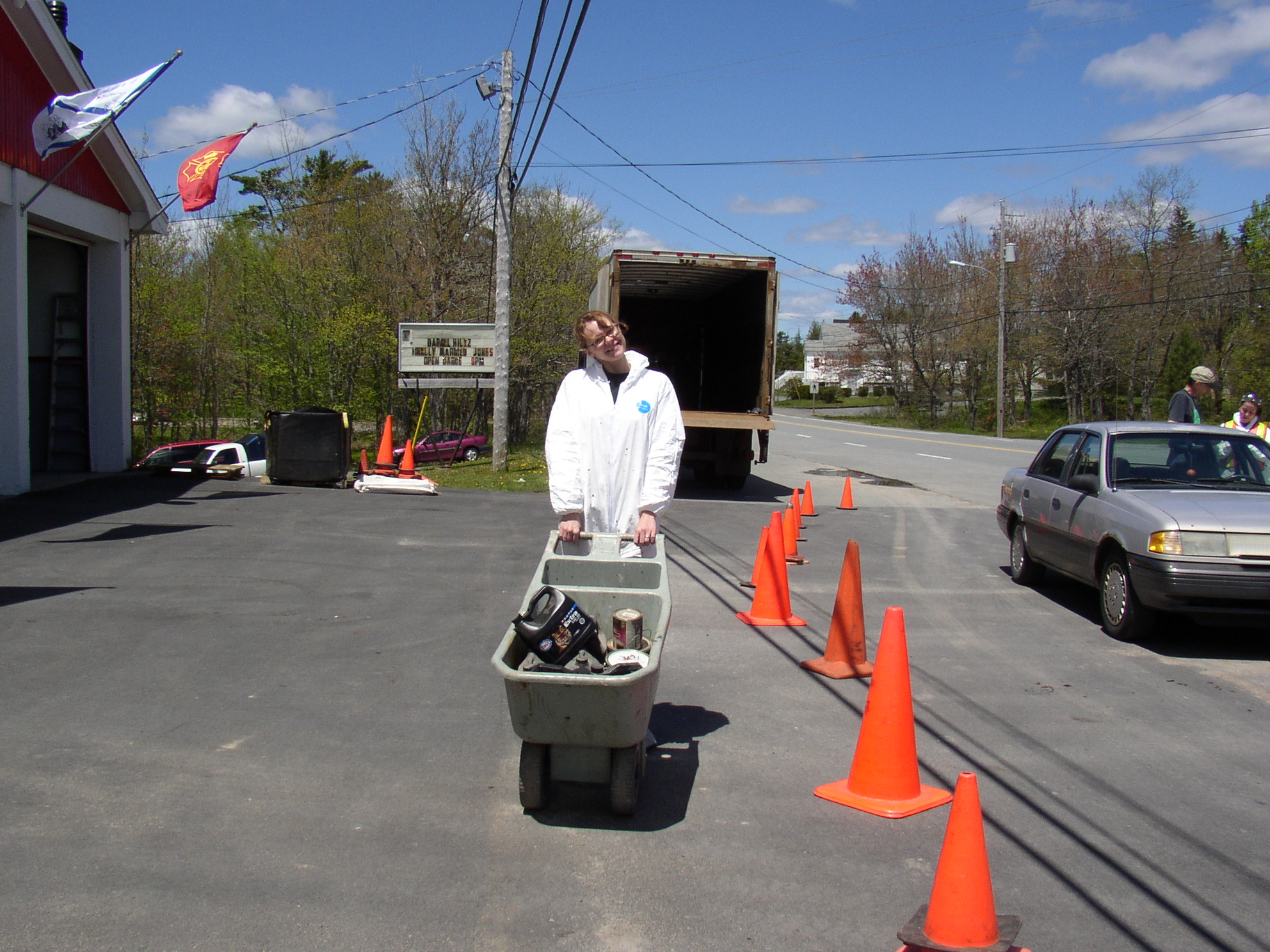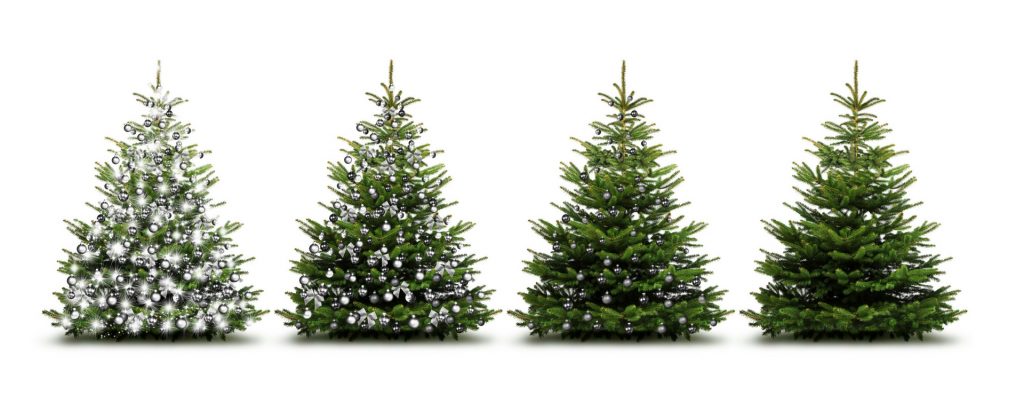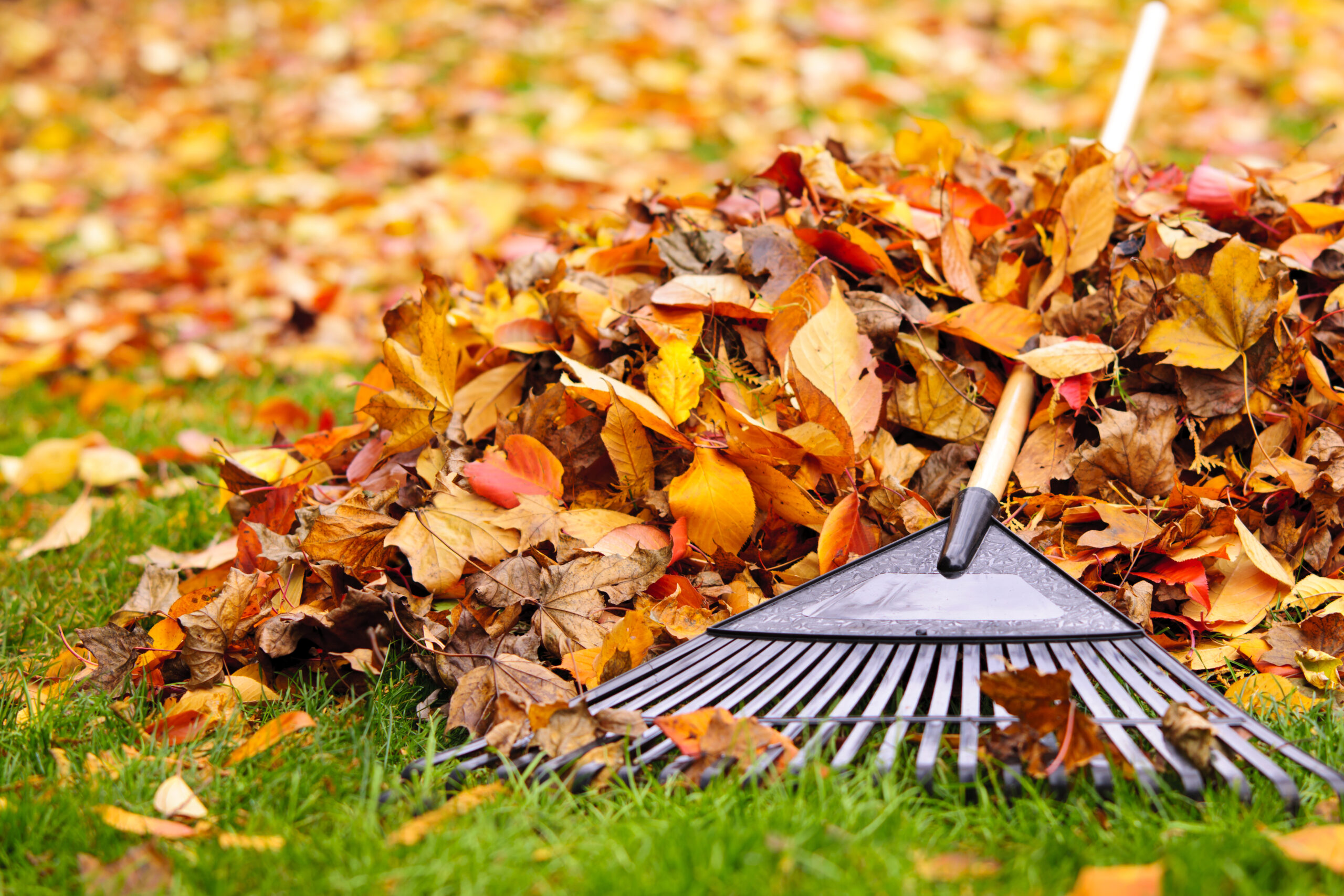Information about waste and diversion programs in East Hants. Know your collection day, receive service alerts and learn what goes where. Download the mobile version or search the tool below.
What Goes Where?
Waste Wizard App
Get answers to your sorting questions, your collection schedule and notifications about service changes right on your phone with our Waste Wizard App!

East Hants Waste Management Centre
Hours of Operation
Larger loads should arrive 30 minutes prior to closing.
Tipping fees are set by East Hants Council. The 2024-2026 schedule is in effect until March 31, 2026.
Contact & Location
1306 Georgefield Rd, Upper Kennetcook, Nova Scotia
Collection Limits & Compliance
- 5 bags of garbage (black or green bags only)
- 8 bags/bundles of recyclables (blue or clear bags only)
- 1 organics (green cart)
Additional Eligible Material (per collection)
- Maximum of 3 large items (example: bed, chair, sofa)
- 1 appliance
- Maximum of 3 metal items (example: bike, bed frame)
- Maximum of 1 TV or computer and 1 cardboard box 1 ft x 1 ft x 2 ft of electronics
- Maximum of 6 cardboard boxes or paper leaf bags with leaf and yard waste
- Maximum of 5 bundles of brush (a bundle = 2 ft x 2 ft x 4 ft; maximum weight = 35 lbs)
The Municipality of East Hants provides limited curbside collection to our businesses. Service is provided via the residential collection route. If your business would benefit from this service, the following outline our collection limits and notes:
- 10 bags of garbage (black or green bags only)
- 16 bags/bundles of recyclables (blue or clear bags only)
- 2 green carts collected
Additional Information
- 1 bundle of cardboard = 1 bag of recyclables
- 1 bundle of cardboard = 2 ft x 3 ft x 1 ft
- Garbage & Recycling bags
- maximum weight = 55 lbs
- maximum bag size = 1 meter long when empty (about 3 ft)
Ensuring your green organics cart stays in good condition during the heat of summer through to the frozen conditions of winter can seem like a tricky task. Here are some tips to keep pests, odours and frozen carts to a minimum all year long.
- Line It: Line the bottom with newspaper, cardboard or yard waste each time your cart is emptied
- Layer It: Alternate layers of kitchen food scraps with yard waste (ex. leaves, grass) or newspaper to keep the cart dry. Wrapping food scraps in newspaper helps limit exposure and interest from pests
- Set It Out: Always set the cart out as scheduled, even if it’s not full
- Rinse It: Rinse after collection (if you can) with mild detergent or a vinegar/water solution, then sprinkle with a small amount of baking soda
- Store It Right: If your green cart is stored outdoors, choose a ventilated and shady area that is convenient for use
Other Tips
- Cold weather can freeze contents of green carts and make them tough to empty. Keeping your cart in a sunny location can help!
- Plastic bags, even those labelled as “Compostable” or “Biodegradable,” are not accepted.
- Kitty litter made of the following natural ingredients go in your green organics cart: clay, paper, wheat, corn, pine, bamboo, walnut, coconut fibre and grass. Other litters like silica gel crystal litter (like Pretty Litter) are not biodegradable and must go in your black garbage bag.
- Plastic, metal, dog feces, or fast food cups are not accepted in the green cart
Call the Solid Waste Hotline for a replacement or new green cart: 1-888-873-3332
Residential Compliance
The Waste Compliance Officer responds to waste collection complaints, ensuring compliance of both provincial regulations and municipal bylaws. Data collected is used to assist our education programming and service reviews.
Institutional, Commercial and Industrial Compliance Promotion
The Waste Compliance Officer assists businesses with training around solid waste so they can better serve their customers. Waste audits are conducted at the business location and at the Waste Management Centre as a method to measure compliance and find areas that require attention.
The Waste Compliance Officer is responsible for investigating and coordinating the clean-ups of these sites.
If you see an illegal dumpsite, do not disturb the material for both your safety and to ensure staff can conduct a thorough investigation.
To report the location of an illegal dump site, call the Solid Waste Hotline at 1-888-873-3332 or report on our Waste Wizard app.
Special Collection Events

The annual compost giveaway event is open to all residents within East Hants boundaries.
- Limit of 4 bags per household of self-shoveled Grade A compost.*
- You can pick up compost for one (1) other household as long as you have their registration form. If you are picking up for another household, the limit is 8 bags of compost per visit
- Bags can hold approximately 25kg each. Bags and compost provided
- You must fill your own bags and place them in your vehicle
The next giveaway is May 9 – 22, 2024 (or until supplies are gone).

Are you looking to securely destroy your confidential papers? Do you have leftover cleaners, solvents and chemicals you want to dispose?
Bring them to one of our annual Fall Residential Household Hazardous Waste (HHW) mobile drop-off and Paper Shredding events.
We have events coming up in Rawdon, Mount Uniacke and Elmsdale in October and November.

Natural Christmas Tree Collection will be on your regularly scheduled pickup day during the first 2 weeks of January. Please ensure to remove lights, ornaments, stand and bags.
The next collection is in 2025.

East Hants partners with the Community Offering Assistance Together Association to collect and distribute winter clothing for those in need across the community.
All ages and sizes will be accepted:
- Gently used winter coats, snow pants/suits
- Hats, gloves/mitts
- Items with minor damage (small rip, tear, broken zippers) will be accepted
- New for this year: sleeping bags, queen/double comforters, socks and yarn for making mittens

